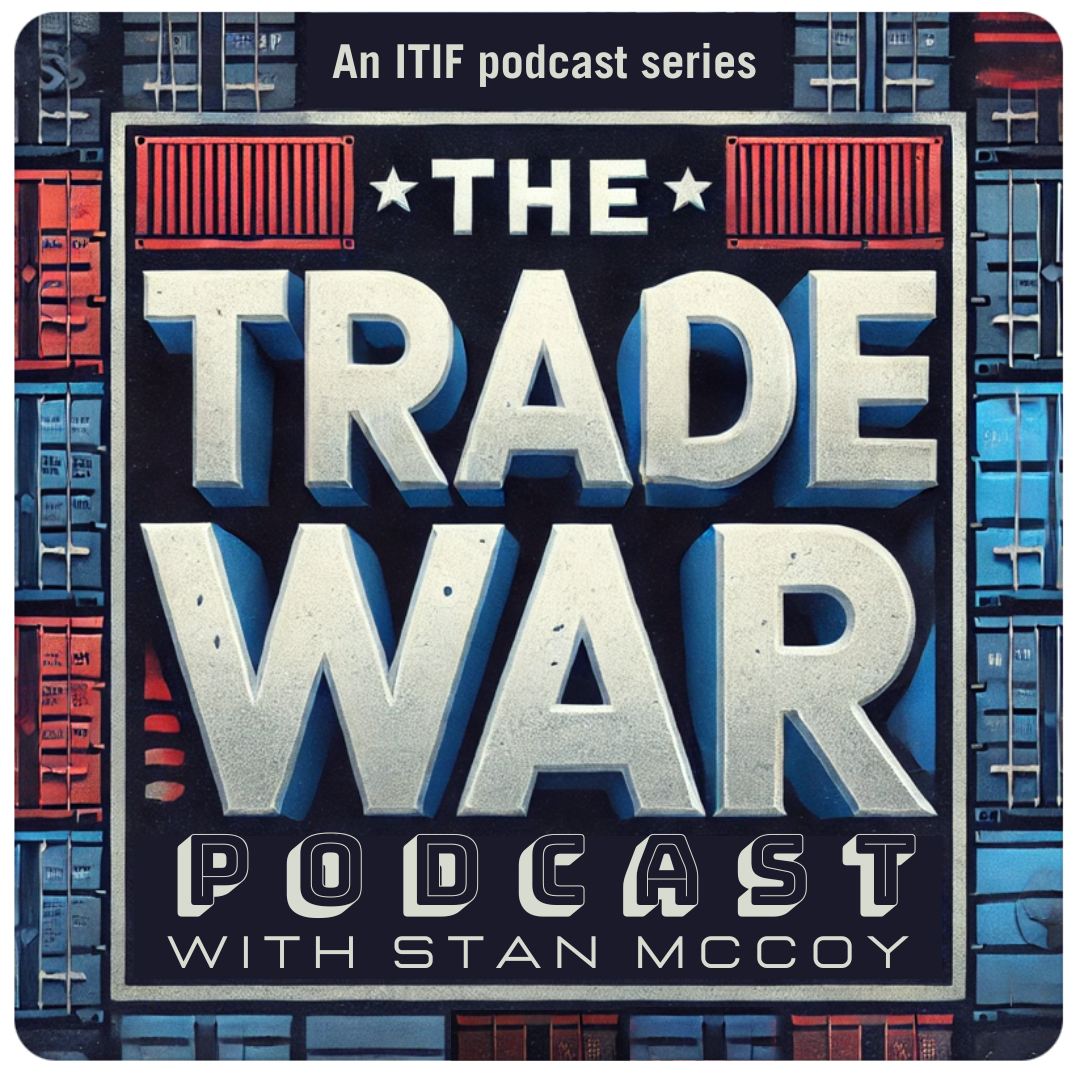Podcasts
Navigate forward to interact with the calendar and select a date. Press the question mark key to get the keyboard shortcuts for changing dates.
Navigate backward to interact with the calendar and select a date. Press the question mark key to get the keyboard shortcuts for changing dates.
Innovation Files: Where Tech Meets Public Policy

Follow Us Wherever You Listen to Podcasts
Explore the intersection of technology, innovation, and public policy with the world’s leading think tank for science and tech policy. ITIF’s Innovation Files podcast serves up expert interviews, insights, and commentary on topics ranging from the broad economics of innovation to specific policy and regulatory questions about new technologies. Expect to hear some unconventional wisdom.
Follow the Show: Apple | Spotify | Etc.
The Trade War Podcast With Stan McCoy

Listen to the Podcast or Watch on YouTube
We are suddenly in a trade war—but what does that mean, and what comes next? The Trade War Podcast with Stan McCoy goes beyond the headlines in candid conversations with top voices in trade, tech, and economic policy. Each episode blends sharp insights with historical context to decode the players, strategies, and policies driving today’s global economic conflict.
July 7, 2025
Podcast: The Case for Smarter AI Regulation, With Matt Perault
Regulating how AI is used—not how it's built—is the only way to protect innovation and give small startups a fair shot.
June 23, 2025
Podcast: mRNA and the Future of Personalized Medicine, With Andrew Geall and Deborah Barbara
Continued innovation and investment is vital to maintaining the U.S.'s leadership in the biopharma sector.
May 12, 2025
Podcast: Decoding the Techno-Economic Power Struggle, With Alex Capri
There is a clear linkage between technology and national security, economic strength and social stability.
May 11, 2025
Podcast: Taking Stock of the Google Search Remedies Trial, Featuring Joseph Coniglio
Joseph Coniglio joined host Cristiano Lima-Strong and fellow expert Karina Montoya on The Sunday Show podcast from Tech Policy Press to analyze the remedies phase of the Google search antitrust trial.
May 2, 2025
Podcast: Tech Oligarchy in the USA? With Giorgio Castiglia
Giorgio Castiglia appeared on the Technocracy podcast, hosted by Heena Goswami of the Institute for Governance, Policies & Politics, to discuss whether the United States is moving toward a tech oligarchy and what that would mean for the future of democracy.
April 28, 2025
Pacific Theater, With With Yeo Han-koo and Wendy Cutler
In this episode of the Trade War Podcast, host Stan McCoy is joined by notable guests Yeo Han-koo, former trade minister of South Korea, and Wendy Cutler, former United States trade negotiator and vice president of the Asia Society Policy Institute.
April 14, 2025
A Conversation With Harry S. Truman
In this special episode of the Trade War Podcast from the Information Technology and Innovation Foundation, host Stan McCoy recontextualizes a 1947 speech by President Harry Truman in interview format.
April 7, 2025
Tax Attacks! With Giammarco Cottani
In this episode of the Trade War Podcast, host Stan McCoy from the Information Technology and Innovation Foundation is joined by international tax expert Giammarco Cottani.
March 17, 2025
Trading Blows: Is Europe Prepared? With Aslak Berg and Ignacio Garcia Becerro
In this episode of the Trade War Podcast by the Information Technology and Innovation Foundation, host Stan McCoy delves into the current state of US-EU trade tensions with esteemed European trade experts Ignacio Garcia Becerro and Aslak Berg.
March 10, 2025
Podcast: Has China Already Won? With Michael Wessel and Stephen Ezell
In this episode of the Trade War Podcast from the Information Technology and Innovation Foundation (ITIF), host Stan McCoy is joined by Michael Wessel, a senior advisor at the Alliance for American Manufacturing, and Stephen Ezell, vice president of global innovation policy at ITIF.

